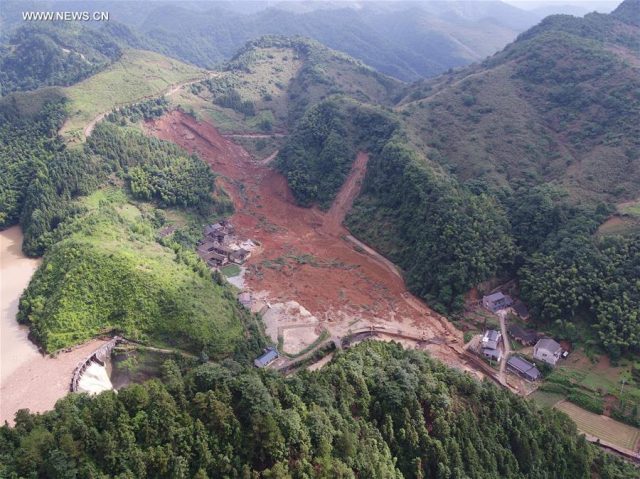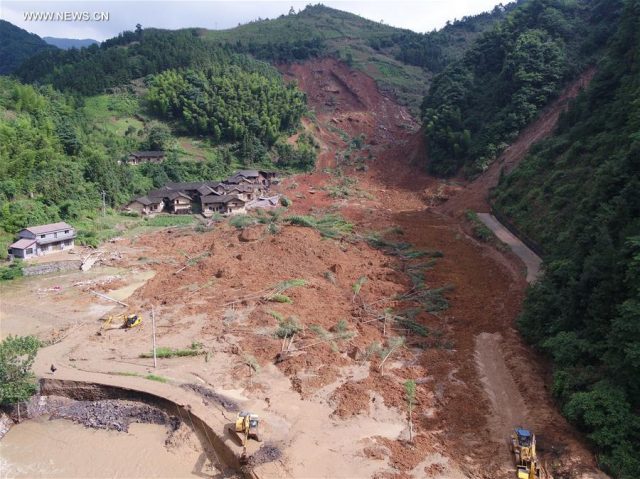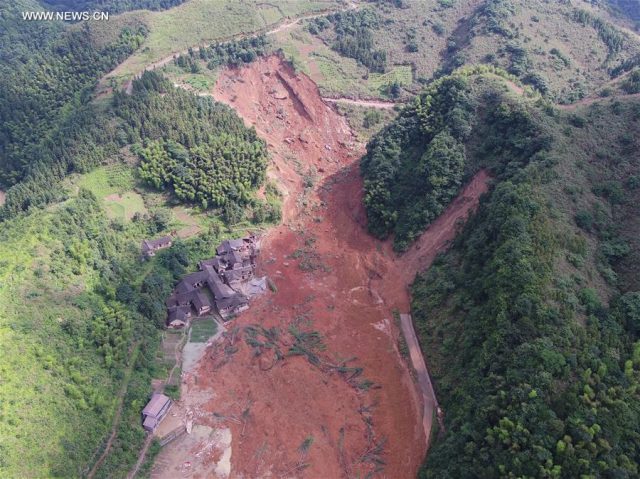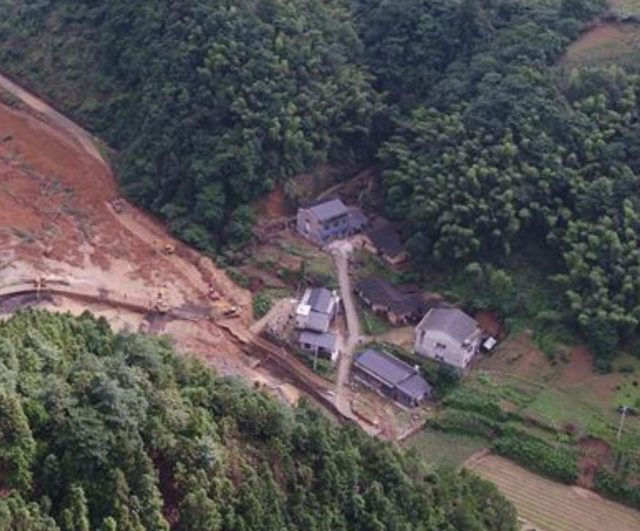22 August 2017
The Zuta Village landslide: another example of a high mobility slide
Posted by Dave Petley
The Zuta Village landslide: another example of a high mobility slide
I have written on several occasions of late about high mobility landslides, both in the context of the Regent landslide in Sierra Leone and the Oso landslide in Washington State. As an aside full mapping is now available of the track of the extraordinary Regent landslide – as expected this was a channelised flow all the way to the coast. Another very interesting example popped up in my Google Alerts yesterday, although the landslide occurred in early July. This example is the Zuta Village landslide, which occurred during heavy rainfall in Hunan Province, central China, on 1st July. The landslide killed nine people and injured a further 19. This image, from Xinhua, provides an overview of the landslide:-

Overview of the Zuta Village landslide, via Xinhua.
.
This view provides a better indication of the source area of the landslide:-

Detail of the Zuta Village landslide, via Xinhua.
.
This appears to be a comparatively shallow translational failure in deeply weathered soil that has transitioned into a high mobility flow, presumably through some sort of liquefaction process. There are marked similarities with the Regent landslide in terms of material and mobility, although in this case the mass has not been able to channelise. The nature of the sliding surface in the source area is also unclear, but the image below suggests the involvement of at least some intact rock:-

Detail of the Zuta Village landslide in China, via Xinhua.
.
As an aside, this set of images also illustrates the ways in which humans can contribute to increased landslide risk. The source area of the landslide is traversed by a road cut into the slope and appears to have been partially deforested. And, separately, a house has been built into the slope, as this detail from the above images shows:-

Detail from one of the Xinhua images showing the site of the Zuta Village landslide.
.
To build this house forest has been stripped and slopes cut, increasing the likelihood of failure. Even worse the building is at the exit of a gully draining a substantial, steep catchment. The first image shows that this catchment has been substantially deforested. This must be subject to debris flow risks. On first inspection this is a further landslide accident in the making.


 Dave Petley is the Vice-Chancellor of the University of Hull in the United Kingdom. His blog provides commentary and analysis of landslide events occurring worldwide, including the landslides themselves, latest research, and conferences and meetings.
Dave Petley is the Vice-Chancellor of the University of Hull in the United Kingdom. His blog provides commentary and analysis of landslide events occurring worldwide, including the landslides themselves, latest research, and conferences and meetings.